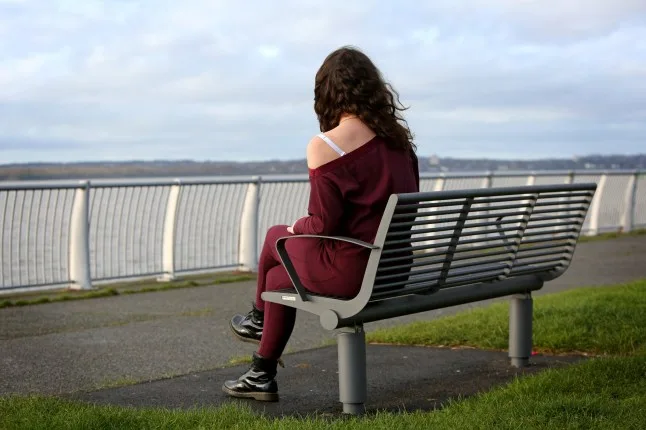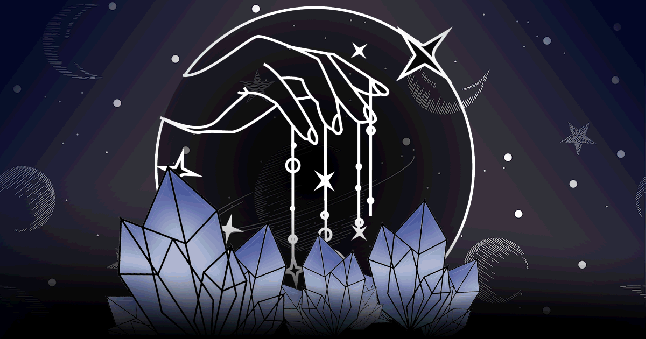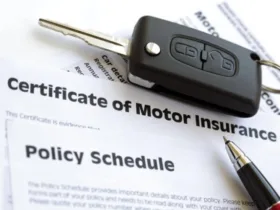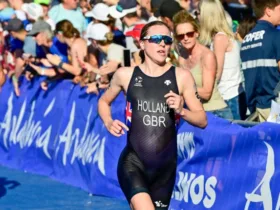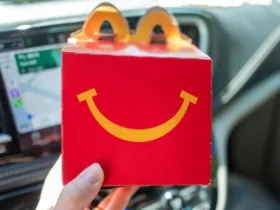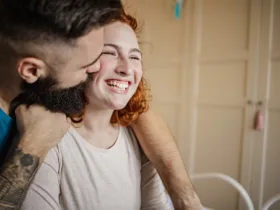
‘Play dead.’
That’s what I told myself over and over as two of my then boyfriend’s friends raped me simultaneously.
‘It’ll be over soon and they’ll be gone. Just play dead.’
-Advertisement-.
I’d been asleep in my bed following a house party when I felt someone remove my knickers. I froze in fear.
Knowing that my boyfriend had continued his night by going out on the town, I knew it couldn’t be him. Even if it had been him, it still wouldn’t have been right – but that meant I now had no idea who was trying to attack me.
Someone then began raping me vaginally. And then another person forced his penis into my mouth.
I couldn’t scream or call for help. All I could do was wait for it to be over.
Though it’s been over 15 years since that night, the flashbacks I get make it seem as vivid and as real as if it were happening to me today. Even with help and therapy, it never gets easier.
I have survived over 10 sexual assaults and rapes in my life. Yet, out of both fear and that I simply will not be believed, I’ve never reported a single case to the police.
This Is Not Right

On November 25, 2024 Metro launched This Is Not Right, a year-long campaign to address the relentless epidemic of violence against women.
Throughout the year we will be bringing you stories that shine a light on the sheer scale of the epidemic.
With the help of our partners at Women’s Aid, This Is Not Right aims to engage and empower our readers on the issue of violence against women.
You can find more articles here, and if you want to share your story with us, you can send us an email at vaw@metro.co.uk.
Read more:
- Introducing This Is Not Right: Metro’s year-long violence against women campaign
- Yvette Cooper’s message to abusers and rapists: The streets don’t belong to you
- Remembering the women killed by men in 2024
- Stories about violence against women don’t make an impact – this is why
- Men – we need your help to end violence against women
- What to do if your loved one is at risk from domestic abuse
Instead, I have carried this shame, this belief that somehow every instance was my fault, that I ‘wanted it’ for years. But that’s simply not true.
The first time I was sexually assaulted was when I was 12 years old.
I was having a sleepover at my best friend’s house when her older brother (who must have been around 17 at the time) called me into his room.
I’d always thought he was weird so I was reluctant to go to him at first, but telling myself I had nothing to be frightened of, I eventually complied.
Then he shut the door behind me and told me to go lay on the bed – alarm bells began to ring in my head. He then laid down next to me and started kissing my neck. I didn’t like it.
Unaware I could say no or how to tell him to stop, I just laid there. And then he forced his hand down my pyjama bottoms.
I didn’t understand what was happening, I felt unsafe but also powerless to stop it. So I zoned out, pictured I was somewhere, anywhere else until he decided we were done.
When I went back to my friend’s room – who’d been asleep while this had happened to me – I didn’t cry or make a fuss. I simply curled up in bed and just stared into the darkness.

For the rest of night, and in the days and weeks that followed, I regularly went between wanting to deny anything had even happened and blaming myself for the fact that something did.
‘You should have said no,’ ‘It was your fault’ and ‘That didn’t happen’ were perhaps the most common phrases I used at that time.
I felt dirty, ashamed, and all I wanted was to escape my own thoughts. Sadly, this desperation led me to experimenting with drugs.
The first time I tried weed, I was 14. It was sold to me by a friend’s older sister’s boyfriend who was around 20, and ‘to be safe’ he’d insisted I smoke it at his place.
It didn’t take long for me to feel the effects and soon I felt completely out of it, but not so much that I didn’t feel him touch me.
‘I really like you,’ he said as he began to pull my underwear down. And then he spun me around.
Panic immediately flooded through me. I knew what he was trying to do, I knew what he wanted to do next. So I ran.
Soon every weekend of my teens and early twenties was spent in a drink and drugs fuelled haze. I liked that it helped me to forget my past, even if only temporarily.

But, with my growing dependence on both substances came other poor life decisions, which saw me put on a curfew tag – an electronic device that monitored my location – at the age of 23.
It was around this time that I decided to host <>that house party.
The evening had involved lots of drinking, some drugs, and dancing, and as things began to wind down my boyfriend suggested continuing the night elsewhere.
‘You know I can’t leave!’ I screamed at him in frustration. But he didn’t care. He left the house soon after, and I went to bed angry, leaving the remaining smattering of guests to fend for themselves downstairs.
Learn more about rape in the UK
- According to Rape Crisis, 6.5million women in England and Wales have been raped or sexually assaulted, but 5 in 6 women don’t report rape
- The number of sexual offences in England and Wales reached a record high of 193,566 in in the year ending March 2022
- UCL research found that rape offences have the highest not guilty plea rate of any offence (85%) and this has been the case consistently for 15 years
- ONS data reveals almost half of all rapes are perpetrated by a woman’s partner or ex-partner, and End Violence Against Women have said that the victim knows the perpetrator in 85% of cases
- The ONS also found that more than 1 in 5 victims were unconscious or asleep when they were raped
Had I known what would happen next I probably would have insisted everyone left, but I didn’t think anything of it. I didn’t think I had a reason to worry.
Everyone who had stayed behind was someone I knew, someone I thought I could trust. The last thing I ever expected was that two of them would end up raping me.
Waking to my assault was harrowing. I had truly no way to escape. So I didn’t move and I breathed as shallow as I possibly could. Even when one of them shouted my name and slapped me across the face trying to wake me, I didn’t flinch.
Playing dead was better than facing the reality that this was happening, again.
But this time I decided I wouldn’t stay silent.
After they left, I waited up for my boyfriend to tell him what had happened. I expected him to believe me and call the police. Instead he called his friends.

They said <>I was lying, yet, in the same breath, threatened to petrol bomb my mum’s house if I uttered this ‘accusation’ to anyone else.
Somehow these conflicting statements weren’t enough to make my boyfriend realise that <>I had been a victim here. Instead he refused to look at or hug me and said was disgusted with me.
His continued disbelief led me to question myself at points: ‘Did I want it to happen? Had I consented and just forgotten?’ I wondered. But I knew in my gut there was no way I would have done so. I would never have agreed to it
Still I felt I had nowhere to turn. I didn’t want to tell friends or family because I didn’t feel it was their burden to bear and I couldn’t tell the police because of the obvious threat.
Once again I felt completely alone.
What to do if you've been raped
If you have been the victim of rape, either recently or historically, and are looking for help, support is out there.
- If you have recently been raped and you are still at risk, ring 999 and ask for the police. Otherwise, the first step is to go somewhere you are safe.
- If you want to report your rape to the police, ring 999 or the police non-emergency line on 101. An Independent Sexual Violence Advocate (ISVA) will often be on hand to help you through reporting and even after you have made a statement, you can still decide to withdraw from the criminal justice process at any time.
- If you plan on going to the police, if possible, do not wash your clothes or shower, bathe or brush your teeth. If you do get changed, keep the clothes you were wearing in a plastic bag. These steps will help to preserve any DNA evidence your attacker may have left on your body or clothes.
- If you don’t want to contact the police, Rape Crisis suggest talking to someone you trust about what has happened; or you can ring one of the UK’s many rape and sexual assault helplines.
- Anyone aged 16+ can contact Rape Crisis’s 24/7 Support Line by calling 0808 500 2222 or starting an online chat.
- If you have been injured, you’re best advised to go to your nearest A&E to seek medical treatment. If you are uninjured, you can go to your nearest Sexual Assault Referral Centre (SARC). The NHS has information on where to find your nearest centre here.
- If your rape is historic, you can still access support, including from the police – there is no time limit on reporting and your account can still be used as evidence.
Read more here.
My relationship broke down not long after, and though I never saw the men who raped me that night again, sadly it was not the last time I was attacked.
A year later I was raped at another house party by a stranger.
It comes back to me in flashes mostly, but there are two things I do remember clearly about that night.
The first is that, to anyone walking past the room, it might have sounded like I was enjoying myself because I had an orgasm. But this is unfortunately a natural biological reaction that I couldn’t control; it doesn’t mean that it was consensual.
The second thing is I remember running from the house and into a cab completely naked – I couldn’t get out of there fast enough.
Despite being at the party with me and seeing how upset I was in the cab home, my friends don’t realise what happened that night. To them it’s a funny story, something to make jokes about. For me it’s a night filled with more shame.
Then there was the time I was raped anally at the strip club I worked at.
It had been a pretty dead night, and drinks were flowing more freely than usual. I was drunk, practically out of it, and I remember ending up in the corridor next to the offices at the back of the building when a security guard walked in.

This man had helped on more than one occasion when a punter had got too handsy, so I trusted him and felt safe in his company. It’s why I thought nothing of it when he led me through to the owner’s office. And then I saw him.
The owner was standing in the middle of the room, a smile plastered across his face and his eyes dark. It was chilling and on some level, I knew something bad was about to happen.
Before I knew it was being forcefully held against the door by the security guard as he unzipped and forced his penis into me, and my boss watched. I was powerless to stop it.
Even if I had tried to scream for help, the one person who should have been there to protect me was helping this happen.
For a while I managed to convince myself it was all a nightmare, that is until I went into work the following week and both men asked me: ‘Is your arse okay?’
I should have reported both of them on the spot, but I never did out of fear of what else they might do to me.
Even more heartbreakingly, in the years since I’ve spoken to other women who worked at the club and two have confided in me that they were also raped by these men in the months after me – though in all likelihood I wasn’t the first, and these other women weren’t the last.
Learn more about Rape Crisis England & Wales
Rape Crisis England & Wales is a feminist charity working to end rape, sexual assault, sexual harassment, child sexual abuse – and all other forms of sexual violence.
Whether it happened recently, or a long time ago; whether you know without a doubt that you experienced sexual violence, or aren’t quite sure; whether it happened to you, or someone you know; Rape Crisis England & Wales will always believe you and listen to you, and they can offer you information and support.
You can find out more about Rape Crisis England & Wales here; and if you’re aged 16 or over, you can call the charity’s 24/7 support line for free on 0808 500 2222.
When I learned about these other women I remember feeling both ashamed and angry.
Ashamed because, had I come forward sooner maybe they wouldn’t have been attacked. But angry too because, if someone else had spoken up sooner, maybe then I could have been saved.
Then, my therapist reminded me that my anger shouldn’t be towards myself or other victims – it should be towards the men that attacked me.
She’s right of course, these men are 100% at fault for what they did to me. But society currently makes women like me feel like they’re the damaged ones.
It’s why for years I’ve blamed myself for being ‘too drunk’ and getting myself into ‘those types of situations’. Or why friends have suggested that I’ve just been in the ‘wrong types of places’ with the ‘wrong types of people’.
But let’s be clear, rape and sexual assault does not happen to any one type or person, nor is it carried out by one type of individual.
Yes, I’ve been raped at parties where, but I’ve also been attacked in my own bed and at work – places I should have felt safe.

I was even raped at a family wedding once by someone I knew. His wife was seven months pregnant at the time, not that this stopped him from grabbing me and abusing me in the bathroom. I was just in shock.
I’ve also been drunk, high and sober when it’s happened. Yet none of these circumstances matter.
Rape is abhorrent no matter what, where or how and we need to stop making survivors feel ashamed for something they simply do not have any control over.
The last time I was raped I was 29. I’d moved to a new city with the intention of having a fresh start and was delighted to be invited to a friend’s housewarming party.
A man I met there gave me pill, after pill, after pill – I didn’t realise it then but I now believe that he was trying to get me so high I’d eventually pass out – but I had built up a tolerance by then.
Even so, he still led me to the bathroom where he began pulling up my dress. I batted his hands away numerous times, I told him no repeatedly, but this only made him more aggressive.
So, I gave up fighting and, like all the men before, he raped me.
While I didn’t say explicitly what had happened, I did tell a friend about this incident. I wanted to be believed. I didn’t want to do this alone anymore. And at first, she believed me.
She went mad and told her boyfriend who agreed to have words with him. But once again, he said <>I was lying.
That’s when my friend switched up: she went from being the only person who’d ever believed me, to the person telling me I had to ‘take it back’ so as not to burn bridges with the new group of friends I had.
I didn’t want to be alone, so I agreed. And then he raped me again at another party.
I’ve wanted nothing to do with that friendship group since then, and instead have been focusing on my recovery. I still have a lot of trauma to unpack and I’ve accepted that I will likely need therapy and counselling for the rest of my life to do so, but I’d rather do that than live with the alternative.
Now, I’m starting to realise that I am a survivor. I’ve been through some of the worst things a person can imagine and I’m still here. But the way we talk about rape, about those who endure it, and those who commit it has to change.
We have to hold rapists to account. We have to stop blaming victims. And we have to switch the narrative.
<>As told to Emma Rossiter
Do you have a story you’d like to share? Get in touch by emailing jess.austin@metro.co.uk.
Share your views in the comments below.


